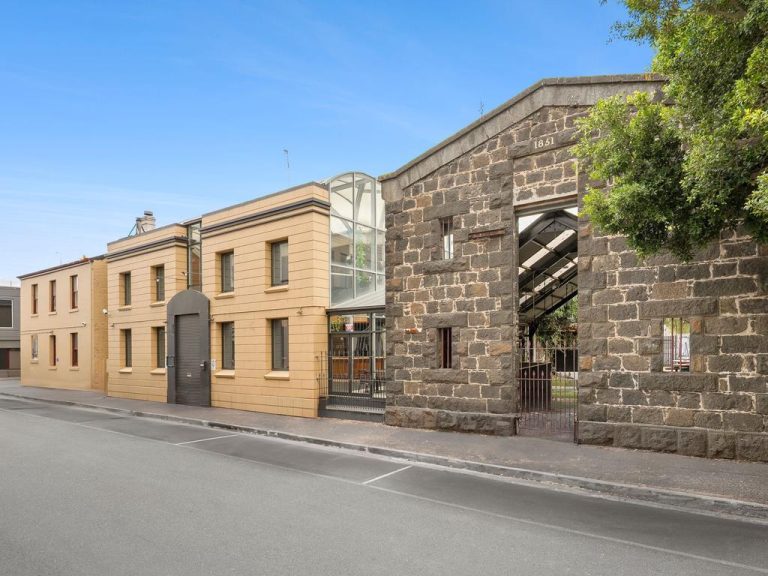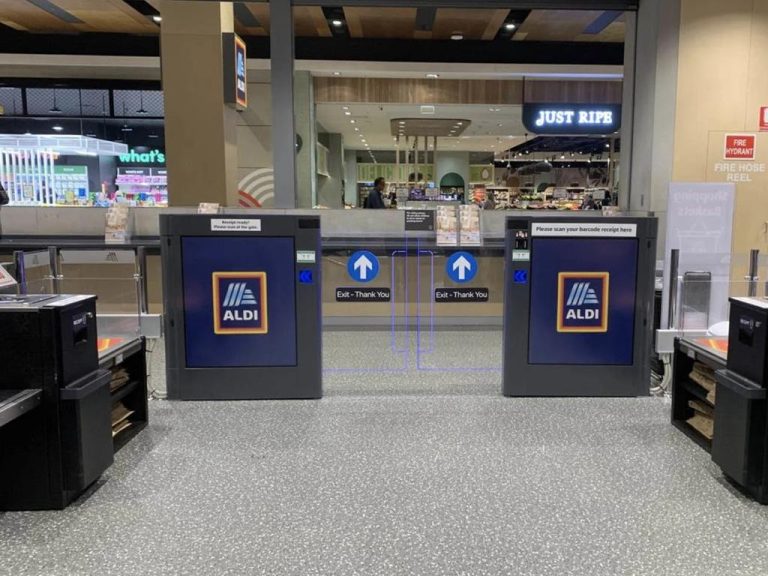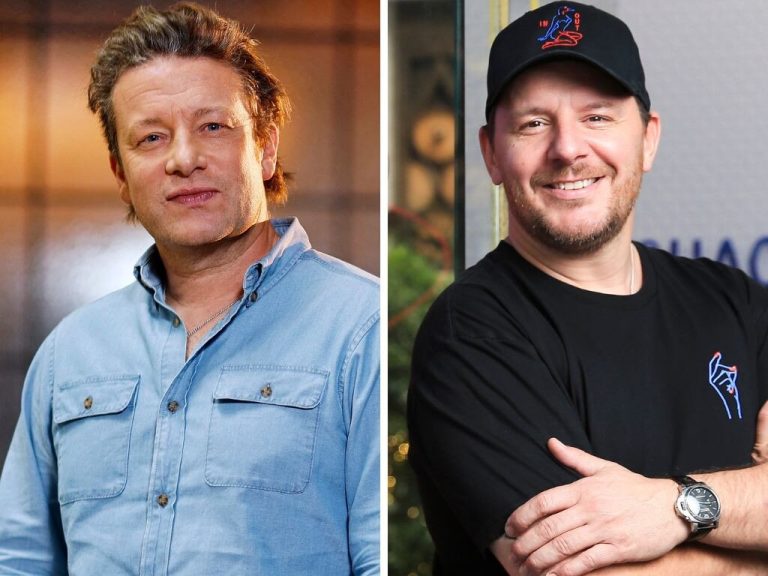Chicken wars: Can the local charcoal chook shop survive the chain takeover?
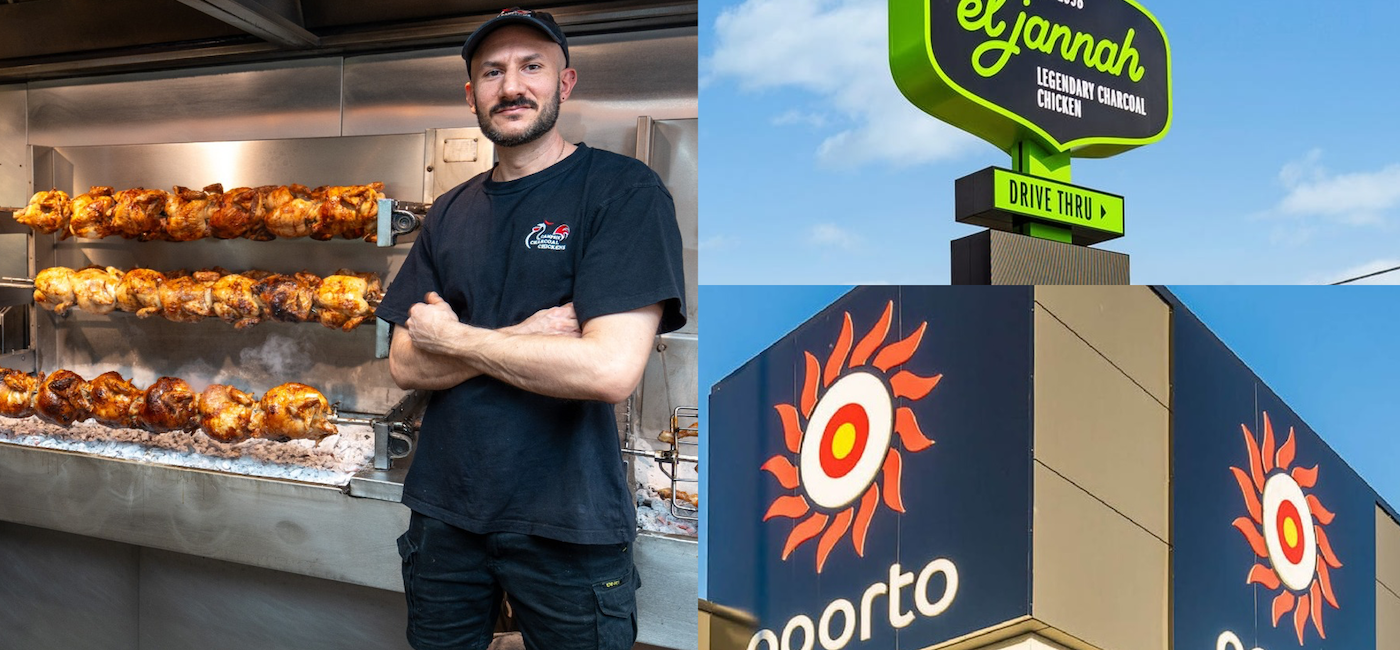
Founded in 1994 by Greek immigrants John and Penny Theodorou, Campsie Charcoal Chickens has been a fixture of Sydney’s southwest for over 30 years.
Over the decades, the neighbourhood shop has become more than just a place to grab lunch or dinner, but a community fixture, woven into the daily lives and memories of Campsie locals.
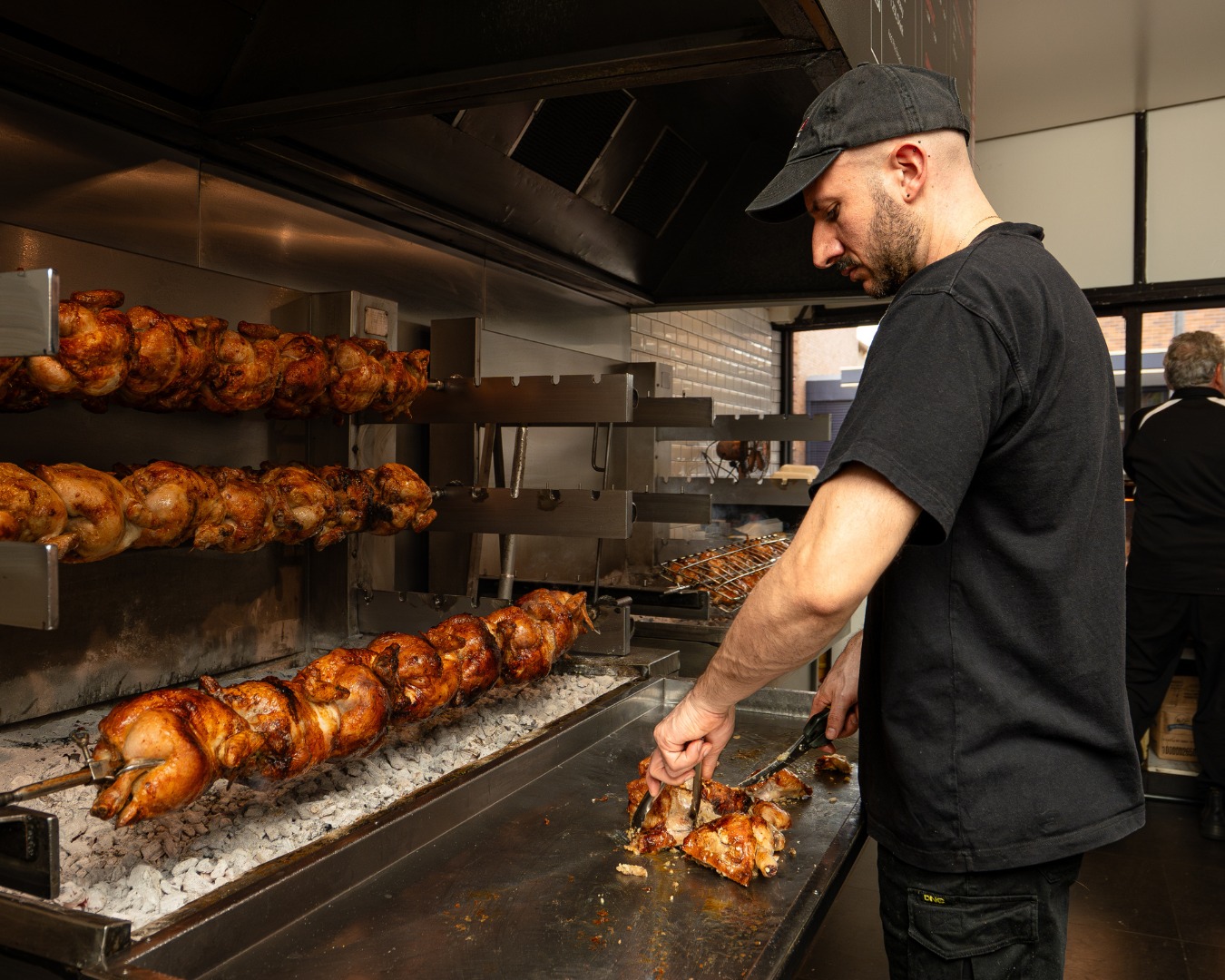
Campsie Charcoal Chickens has been a fixture of Sydney’s southwest for over 30 years. Picture: Supplied
Son-in-law Chris Conti tells realcommercial.com.au his parents had no prior experience in hospitality when they ventured into the charcoal chicken game.
“Dad’s always been great on the barbecue, so they learnt as they went along. He handled the cooking side and Mum ran the shop – they were a great team.”
Mr Conti and his wife Maria took over the business 14 years ago, continuing the family tradition.
“Mum and dad were getting older and the shop was becoming harder for them to run, and the staff were ageing with them. But we’ve managed to keep it going as a family business focused on the community,” he said.
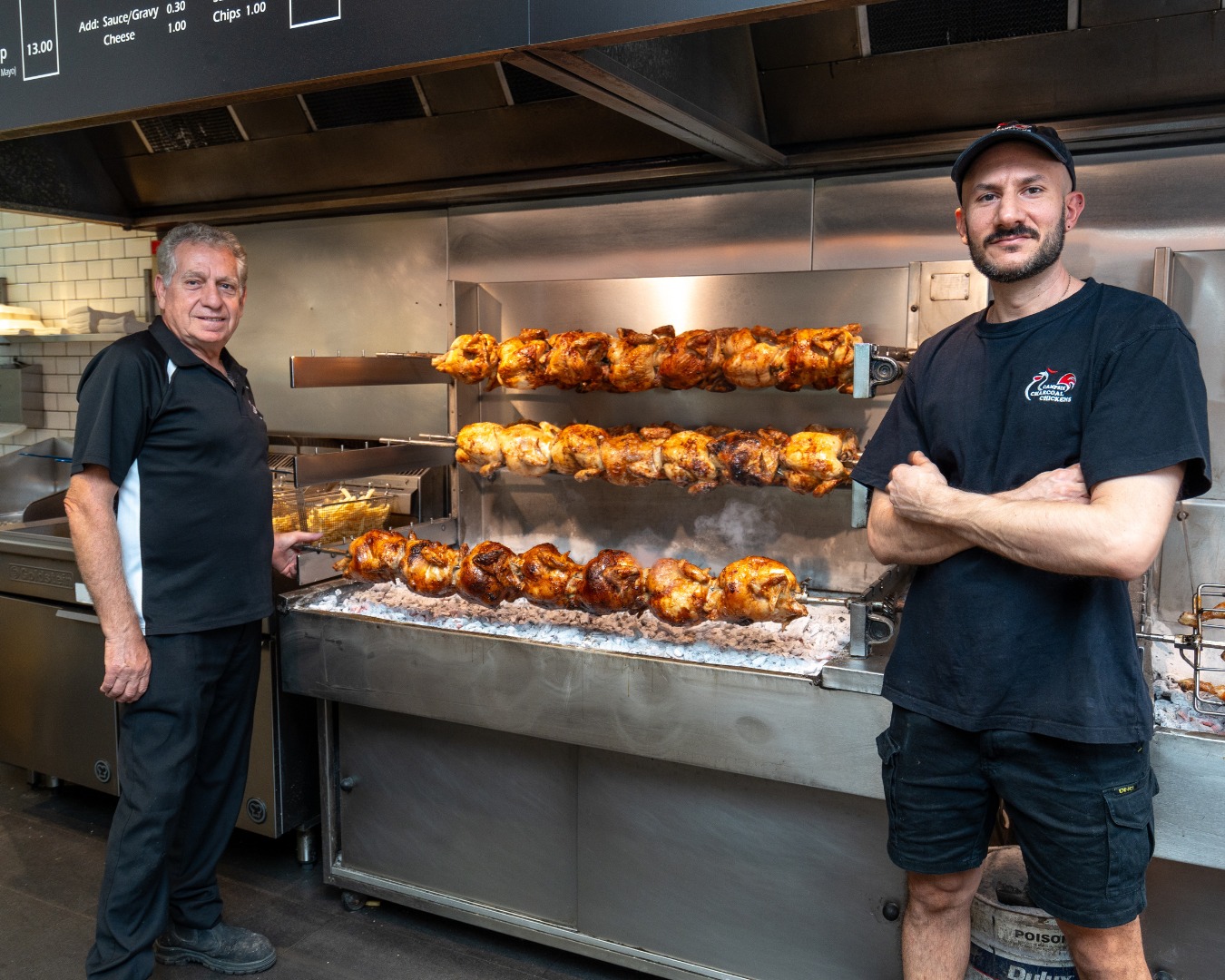
John Theodorou and son-in-law Chris Conti of Campsie Charcoal Chickens. Picture: Supplied
For decades, countless neighbourhood shops like Campsie Charcoal Chickens have been the heartbeat of Australian high streets.
As familiar as the local post office or milk bar, these family-run staples embody a uniquely Australian phenomenon, serving up smoky birds, golden chips and generous lashings of gravy and sides to local communities.
But the country’s casual dining scene has evolved significantly over the past three decades, and neighbourhood chicken shops now compete directly with commercial chains like Frango’s, El Jannah, and family-run franchise phenomenon, Chargrill Charlie’s – many of which began as a humble chicken shop in suburban Australia.
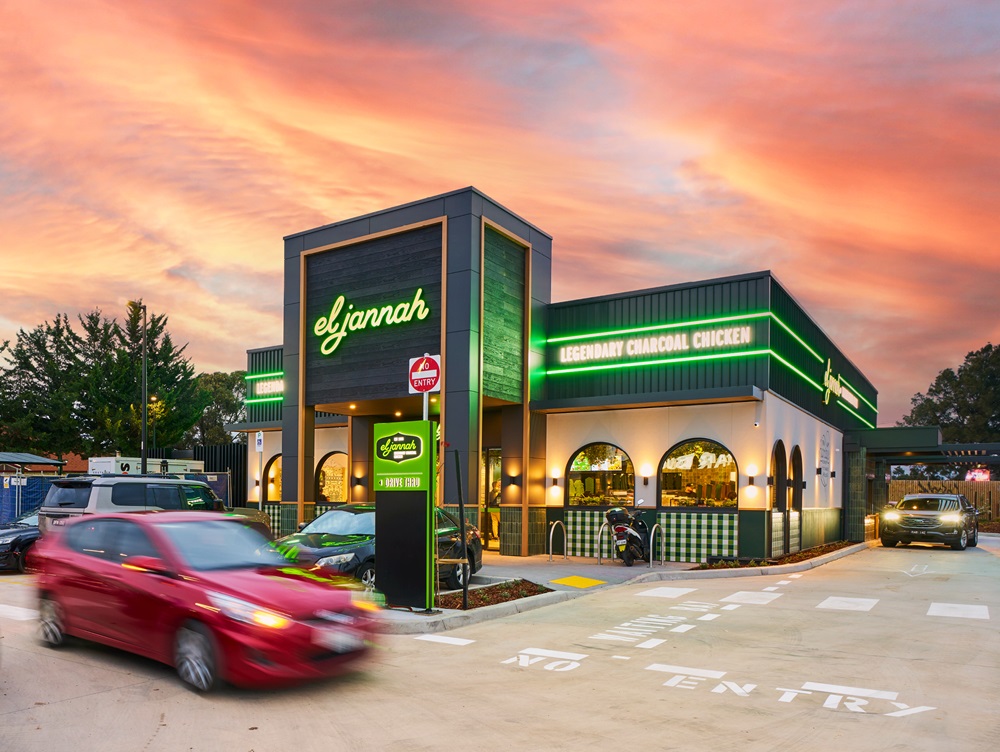
Now a national franchise, El Jannah was founded in 1998 by Lebanese immigrants Andre and Carole Estephan. Picture: realcommercial.com.au
As these notable brands transform the humble takeaway chook into a curated lifestyle experience, are small independents like Campsie Charcoal Chickens being pushed to the periphery of the modern consumer’s mind?
“A city like Sydney will always have lots of competition and vast amount of food options, which certainly makes things tougher. And a lot of these franchise businesses are very cool among the younger generations. It’s almost impossible to compete with their level of marketing and budgets,” Mr Conti explained.
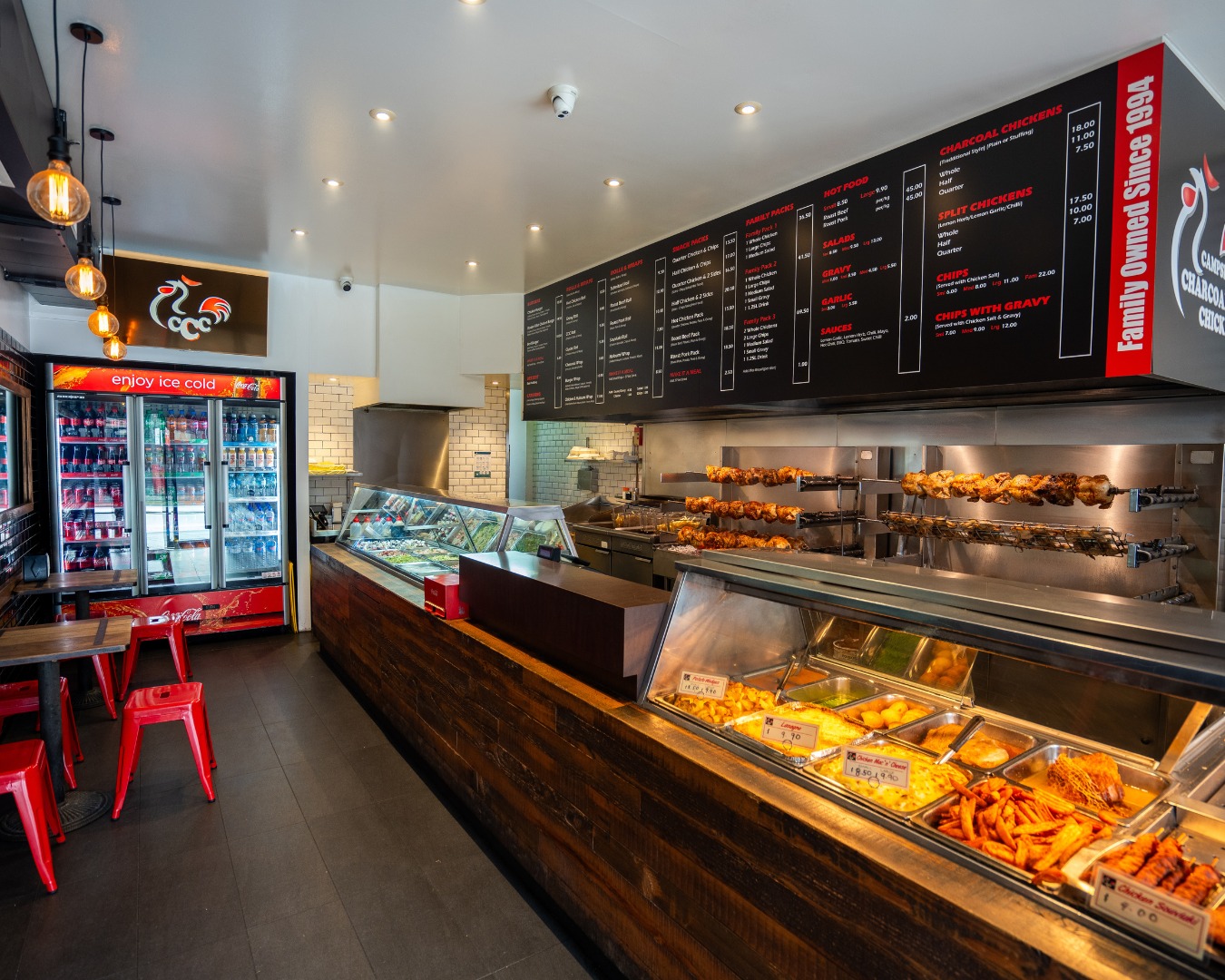
The humble charcoal chicken store is facing strong competition from big franchises with large marketing budgets. Picture: Supplied
“There will always be a new take on the chicken shop or the next flavour of the month, so I think you have to remain true to yourself but also diversify to new tastes.”
A brief history of the charcoal chook
Family-run chicken shops can be traced back to the 1950s, when post-war Australia experienced significant migration and suburban growth, leading to the emergence of local takeaways popping up in suburban shopping strips and major high streets.
Often run by European migrant families – particularly Greek, Italian and Maltese – these rotisserie-style delis kept things simple: roast chicken, chips, peas and gravy for Australia’s growing suburban households.
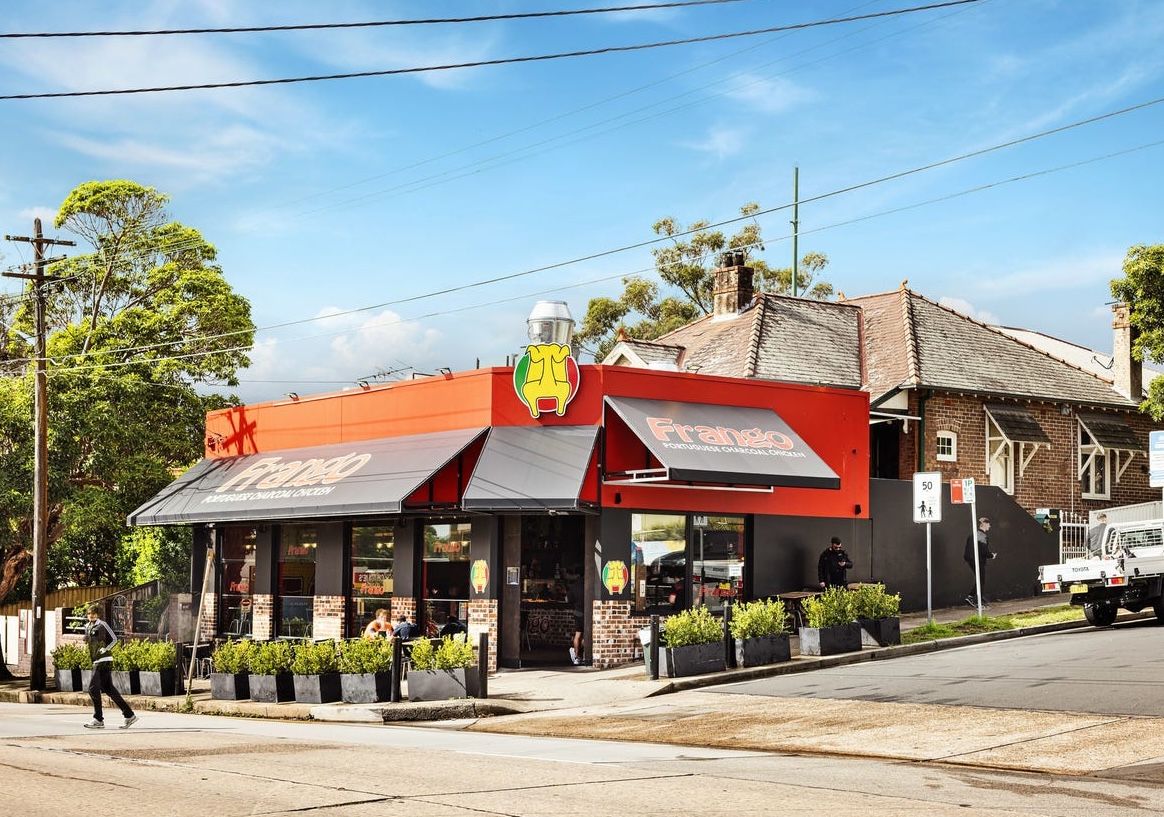
Portuguese chicken chain Frango was founded in Sydney’s Petersham in 1989. This freehold in Drummoyne is currently for sale. Picture: realcommercial.com.au
Suzee Brain, director of food consulting agency Titanium Food, notes their strong representation of the traditional Anglo-family Sunday roast.
“The basis of a protein (chicken), a starch (potato) and vegetables or salad is a universal meal base,” Ms Brain explained.
By the late 1970s, these charcoal chicken shops had become a suburban staple, places where the neighbourhood stopped by after sport, school, or on the way home from work.
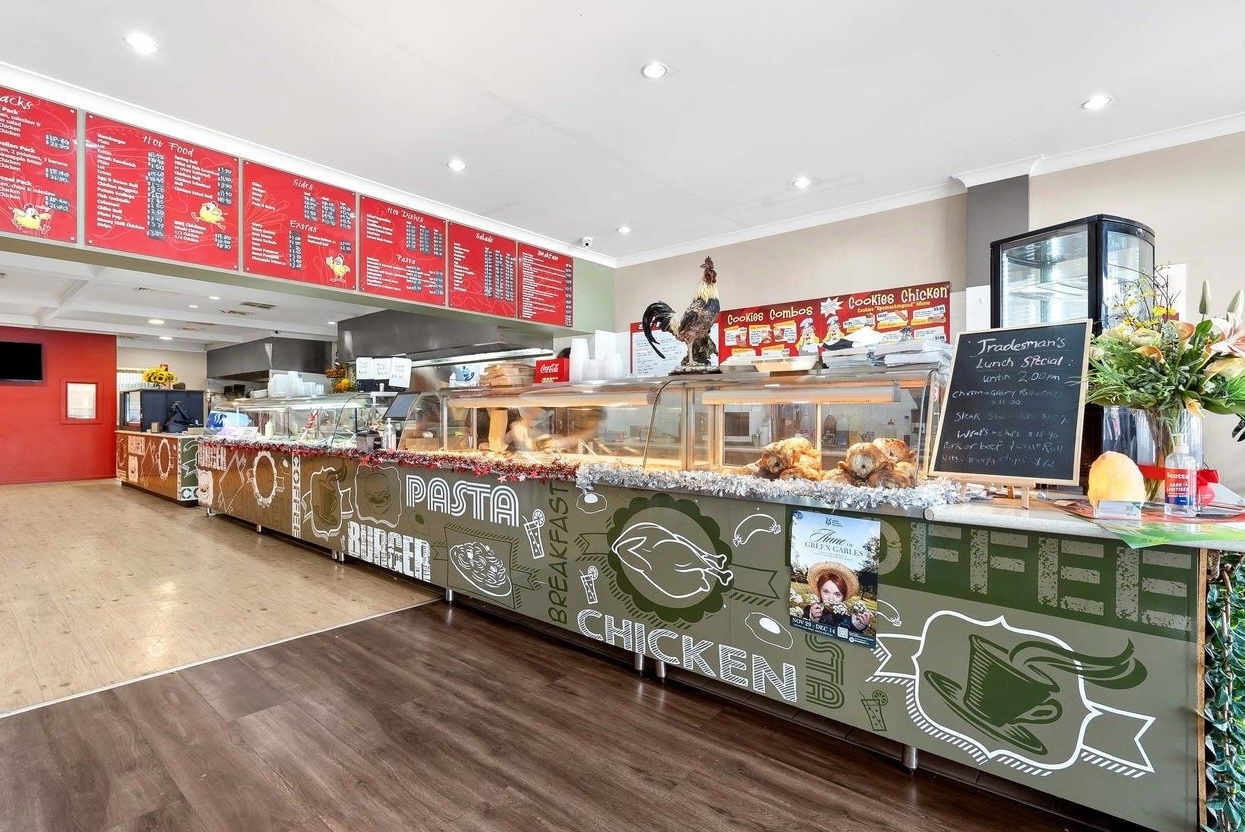
Freehold for sale with a secure tenant: Goulburn Charcoal Chicken has been in operation for 30 years. Picture: realcommercial.com.au
Immigrant entrepreneurs added their own regional twists; Greek-style lemon and oregano chicken, Italian salads, and later Portuguese marinades and Lebanese sides.
Ms Brain said the unique ‘charcoal’ style of cooking chicken gained popularity due to its broad appeal.
“There are minimal spices in charcoal, which makes it great for older and younger palettes that are more sensitive to extreme flavours. Chicken is also the most universal protein eaten, so as Australia’s multi-culturalism diversified, chicken could satisfy many cultural and religious requirements.”
The chain phenomenon
Emerging in the late 1980s and 1990s, chains like Oporto and Frango’s signalled a shift in Australia’s charcoal chicken scene, blending the familiarity of traditional takeaway shops with the scale and efficiency of quick-service restaurant giants like KFC and Red Rooster.
Their use of Portuguese-style marinades and sides such as chilli rice and pita bread tapped into Australia’s growing appetite for multicultural flavours.
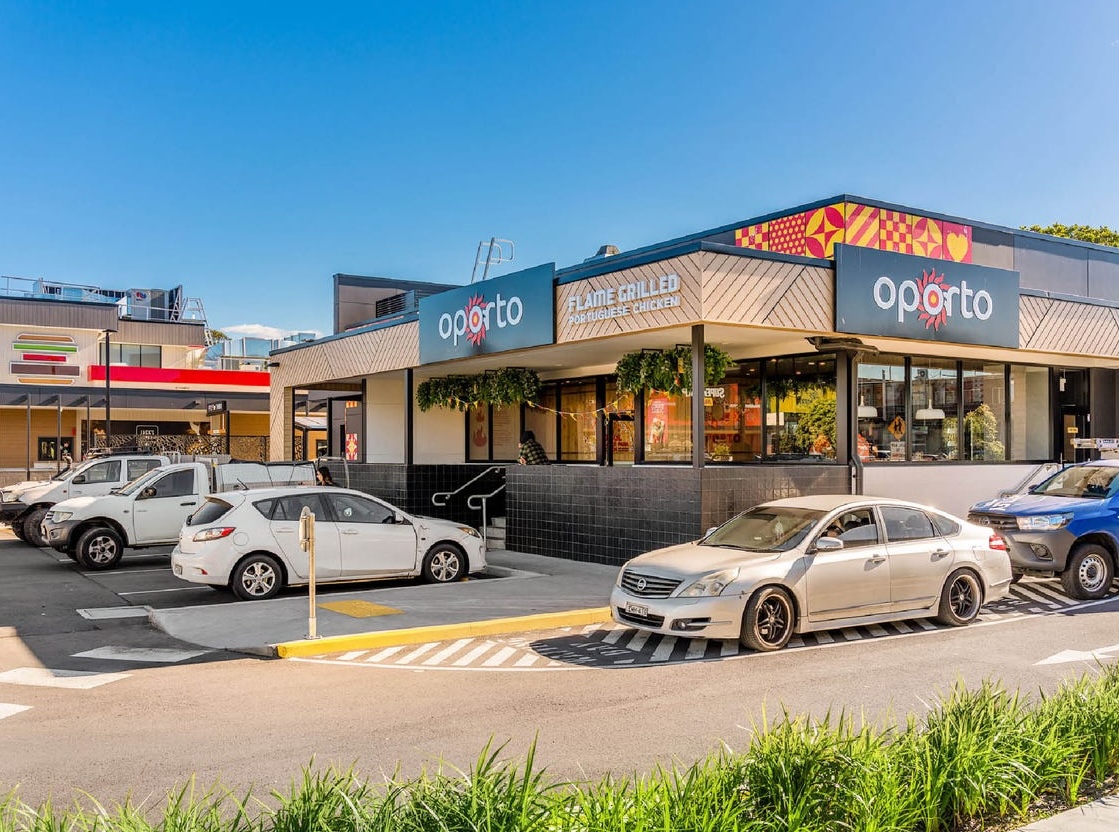
Now a national franchise, Oporto was founded in Bondi Beach in 1986 by Portuguese migrant Antonio Cerqueira. Picture: realcommercial.com.au
Pairing polished fit outs with strong branding and marketing designed to appeal to younger audiences, these brands introduced a lifestyle-focused dining experience that continues today.
“Younger generations are more excited by clever branding, dine in-and-out options, and the opportunity to socialise in groups, which these modern chains provide,” Suzee Brain said.
“Similar to how Yo-Chi took a takeaway frozen product and made it a dine-in option through branding and placemaking, so have franchised charcoal chicken chains created places for date nights, family dinners, or a post touch footy meal with the team.”
Ms Brain notes that while independent chicken shops have long been community mainstays, often knowing their customers by name, many struggle to meet evolving expectations.
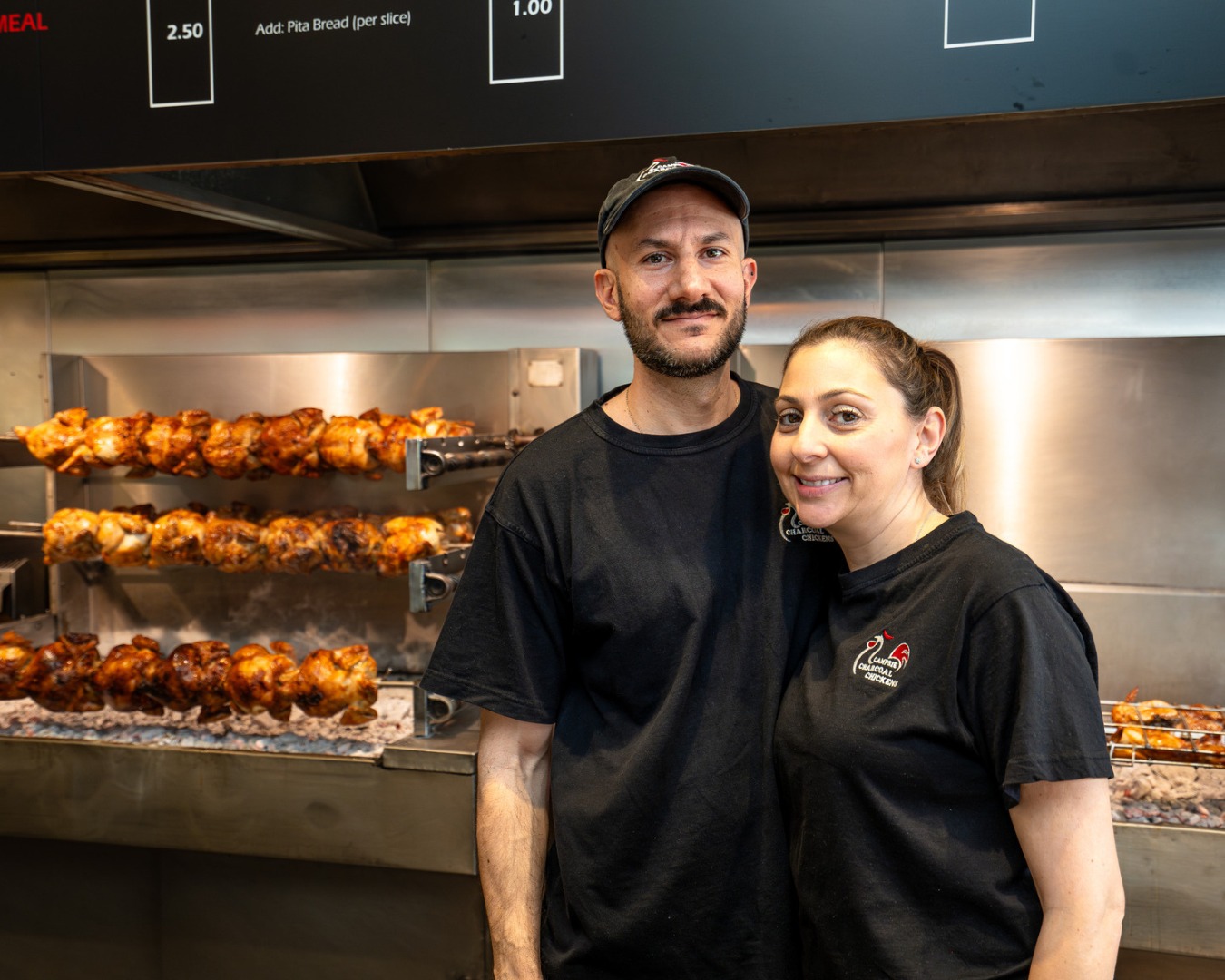
Chris and Maria took over the family business, Campsie Charcoal Chickens, 14 years ago. Picture: Supplied
But Chris Conti insists his business continues to adapt and keep up with the times.
“We’ve always done our own thing, but we also keep our eye on the competition. For example, when I took over 14 years ago, we didn’t have a chicken burger on the menu. Now you need one to compete with Frango’s and Oporto. So along came the burgers and the wraps.”
Likewise, the rise of Lebanese-style charcoal chicken brand El Jannah – launched in 1998 – has also influenced the diversification of his menu.
“We never sold garlic sauce before and now I sell heaps of it,” Mr Conti said. “If you don’t give people what they want, they’re not going to come through the door.”
Keeping it real
As the charcoal chicken industry continues to modernise, the success of Chargrill Charlie’s suggests that growth doesn’t have to come at the cost of authenticity.
Despite being acquired by Craveable Brands in 2023 – the group behind Red Rooster, Oporto and Chicken Treat – the long-standing brand has retained the familiarity of a family-run shop.
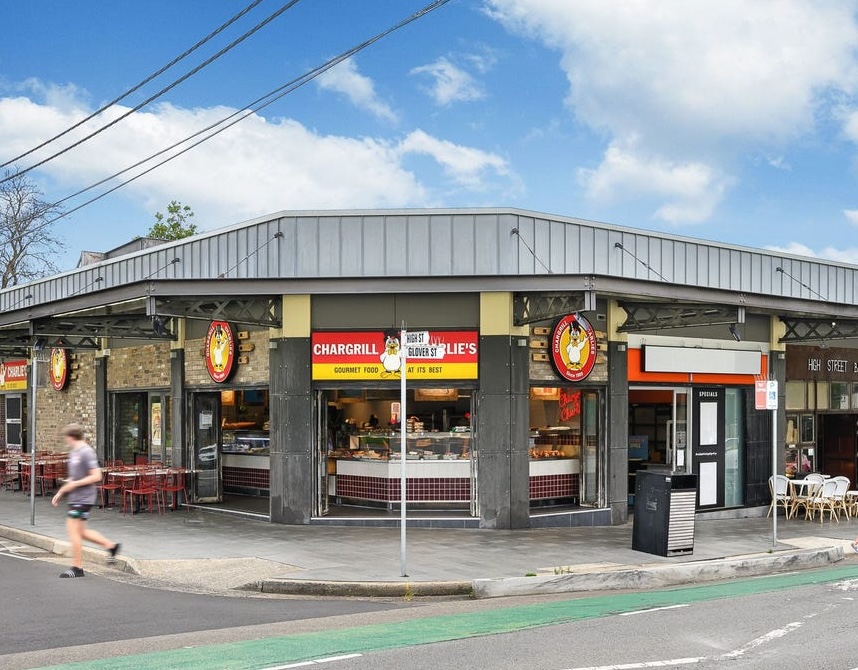
Now a national franchise, Chargrill Charlie’s was founded in Coogee in 1989. Picture: realcommercial.com.au
Founded in 1989 in Coogee by two South African families, Chargrill Charlie’s has built its reputation on homestyle cooking, generous portions and friendly service – the hallmarks of the classic suburban chicken shop.
“People really think of us as their local chicken shop. This is reflected in our ability to flex the menu through a variety of dishes depending on season or customer feedback,” CEO Nathan Kelk told realcommercial.com.au.
“Our mission is to deliver gourmet food at its best. Our cooking platform also differentiates us from charcoal chicken shops because it doesn’t actually use charcoal,” Mr Kelk added.
Now with 27 stores across Sydney and Melbourne, the company launched its first Brisbane location in New Farm this year.
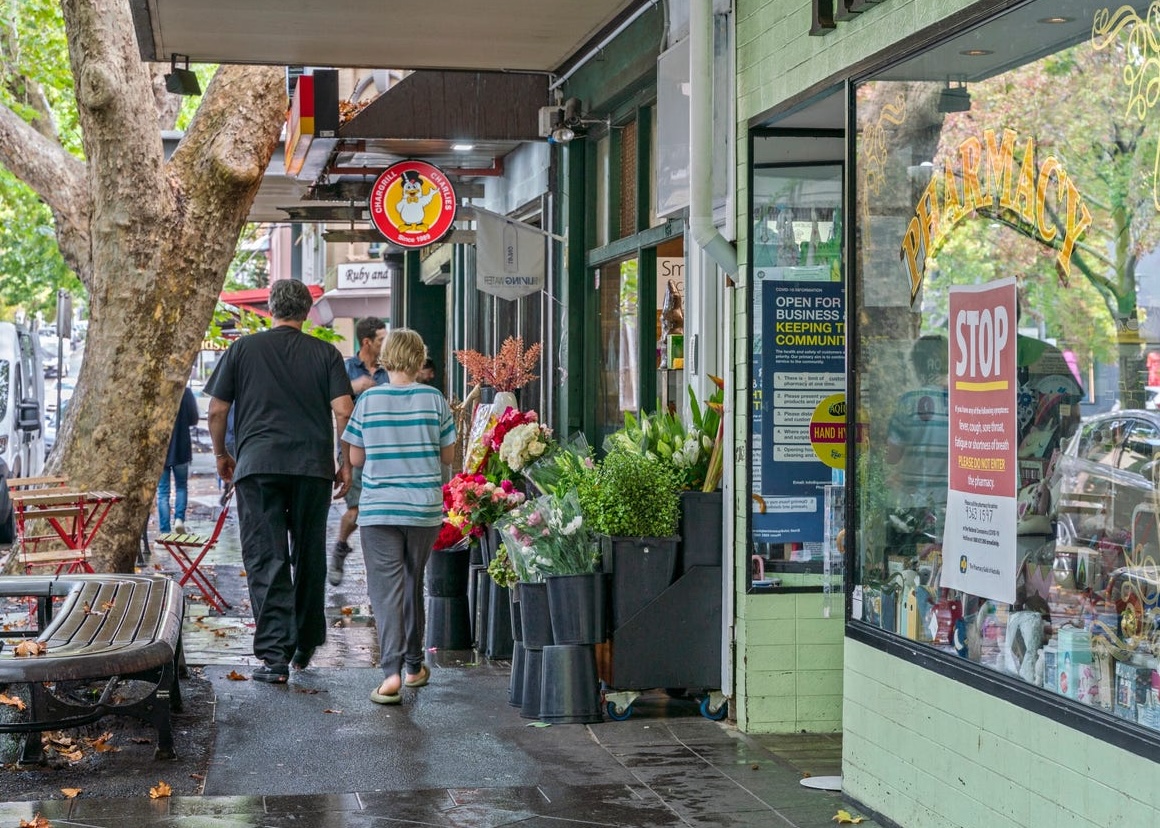
Chargrill Charlie’s now has 27 stores across Sydney, Melbourne and Brisbane with more on the way. Picture: realcommercial.com.au
Nathan Kelk said there was huge demand for Chargrill Charlie’s in Brisbane.
“We had customers writing to us, saying come to Brisbane, many who had experienced Charlie’s in Sydney or Melbourne through travel or interstate moves, so it was a natural fit.”
The suburbs of West End and Bulimba are next for Brisbane, with additional openings planned for Melbourne and Sydney, including new stores in Richmond, Kellyville and Redfern.
As food consultant Suzee Brain notes, the success of Chargrill Charlie’s shows how the humble charcoal chicken model can scale up while keeping the familiarity that made it a fixture of Australian suburban life.
Tradition endures
In many ways, the survival of the neighbourhood charcoal chicken shop reflects the story of suburban Australia itself – multicultural, adaptable and quietly enduring.
While the chains may dominate social media, independent chicken shops remain true to tradition.
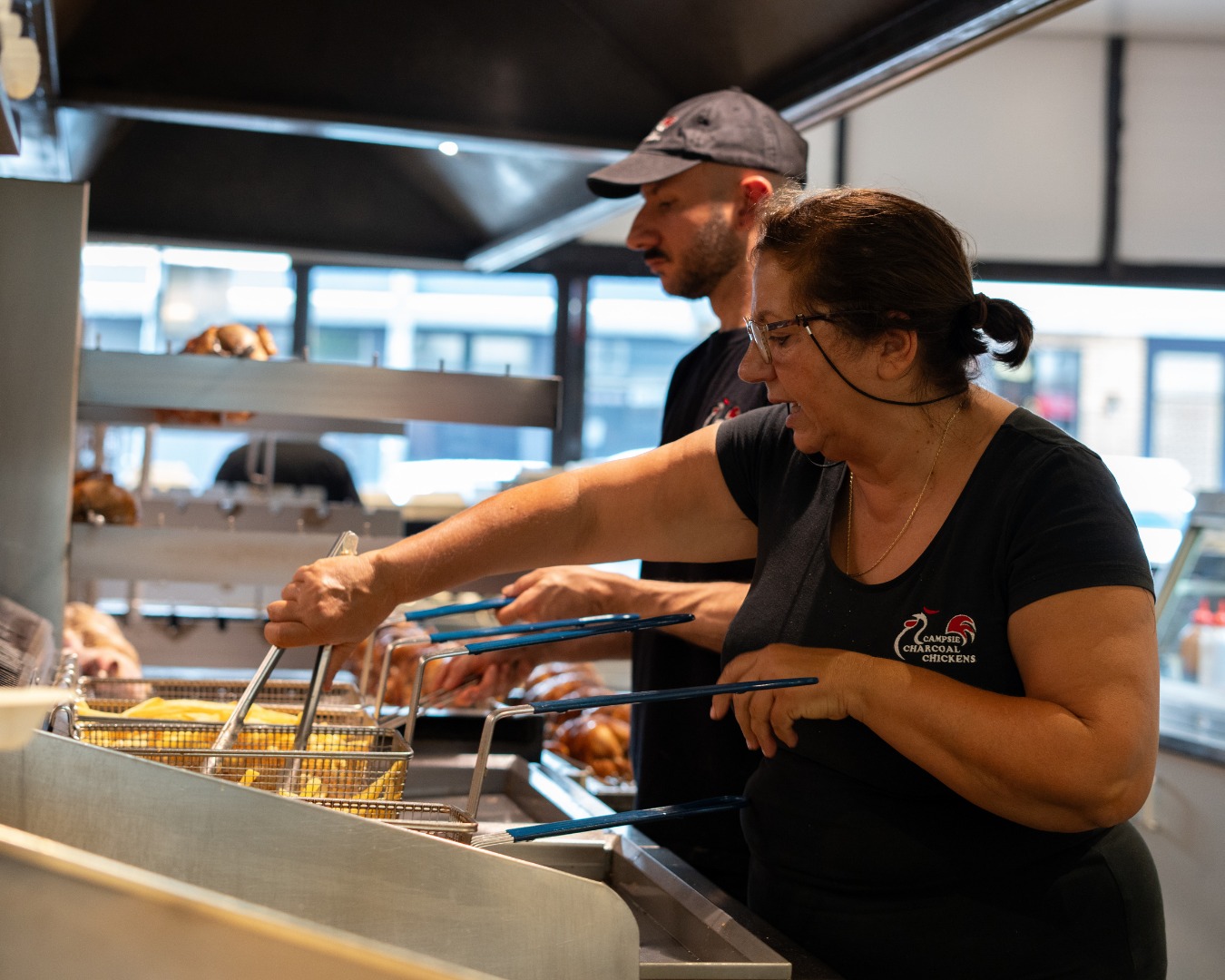
Penny Theodorou still greets customers at Campsie Charcoal Chickens each morning. Picture: Supplied
At Campsie Charcoal Chickens, Penny Theodorou still greets regulars for a couple of hours each morning, while Chris Conti brings his kids into the shop during school holidays, passing the legacy on.
“We’ve always focused on what we can control, staying true to ourselves and having faith in our product. If we keep doing what we’ve always done and serving great food, we’ll be in good shape no matter what opens up around us,” Mr Conti said.
“I don’t care where you’re from, everybody loves hot chips. And when that school bell rings, we’ll always be ready.”

